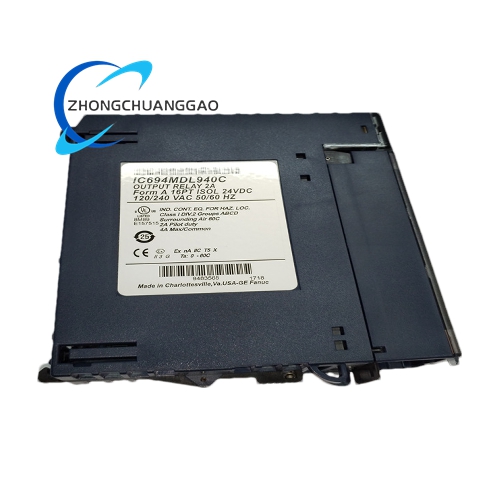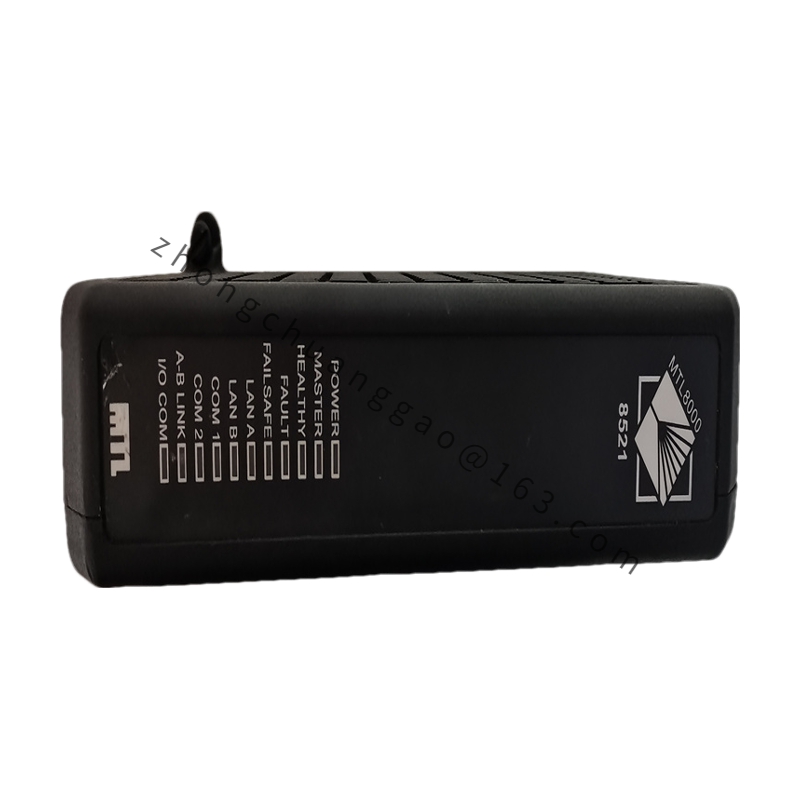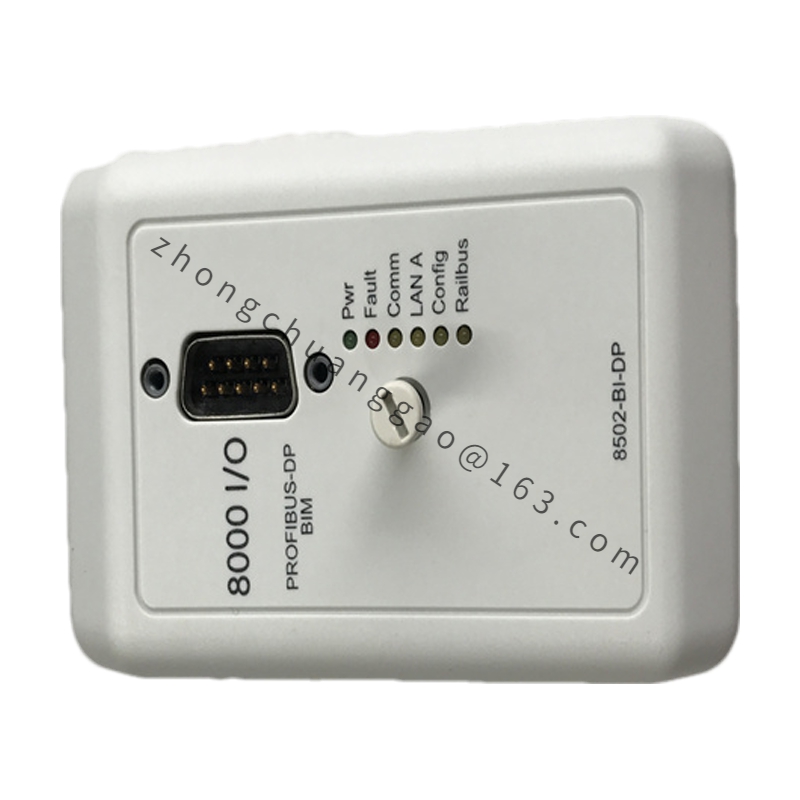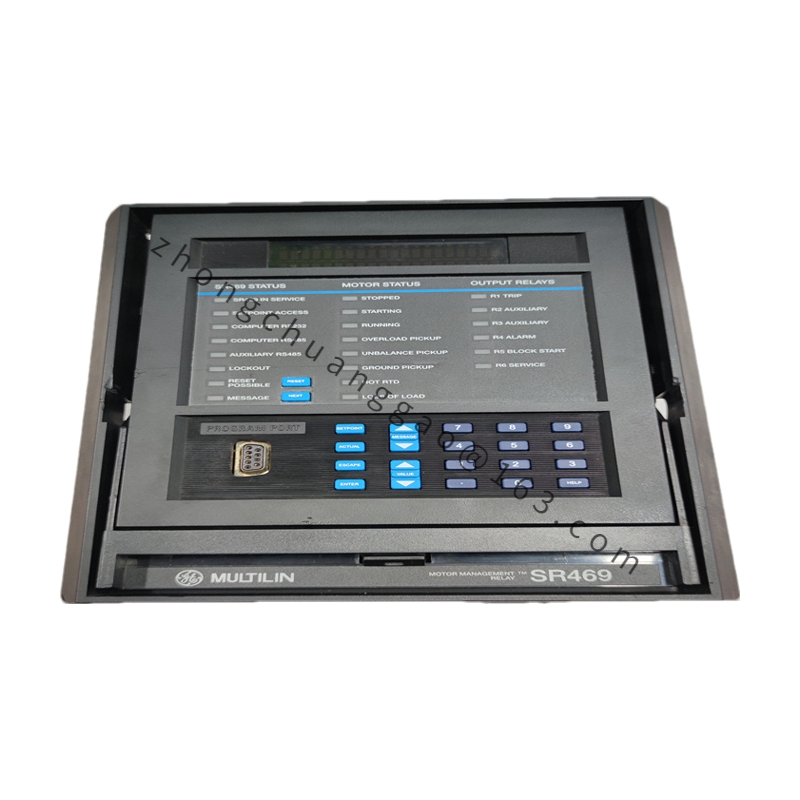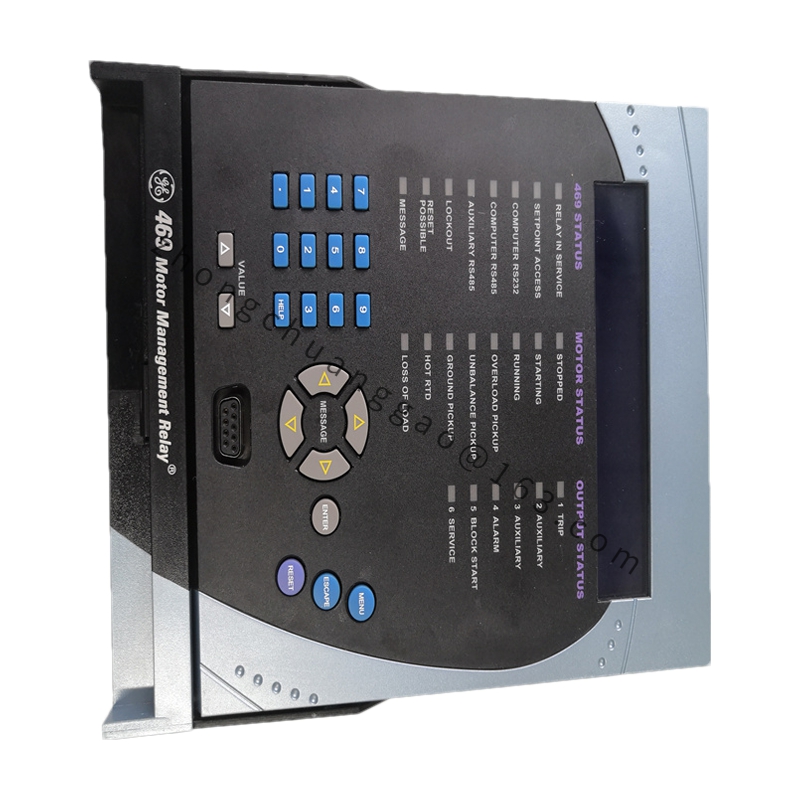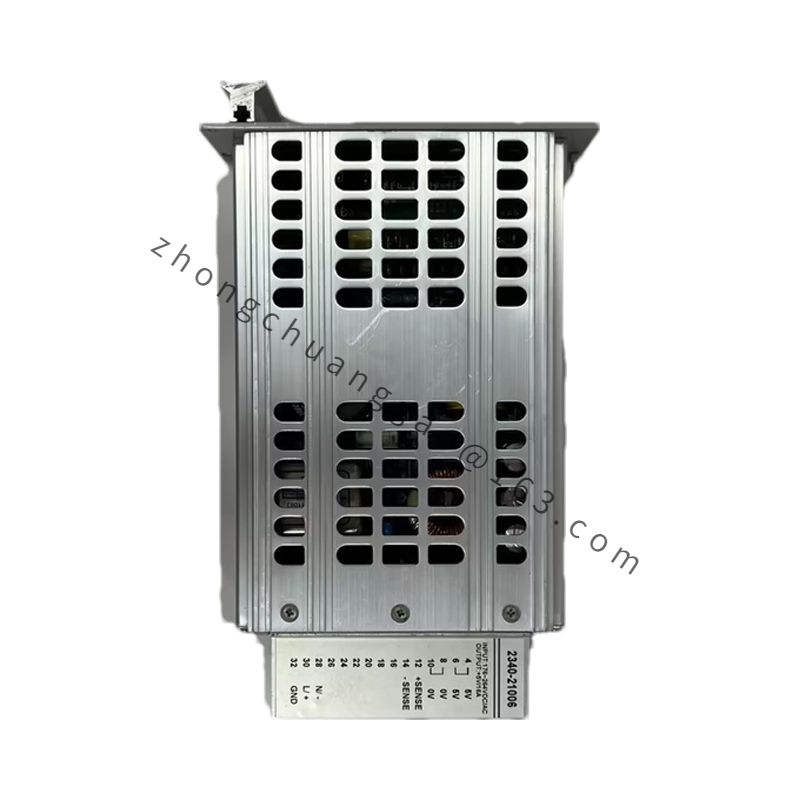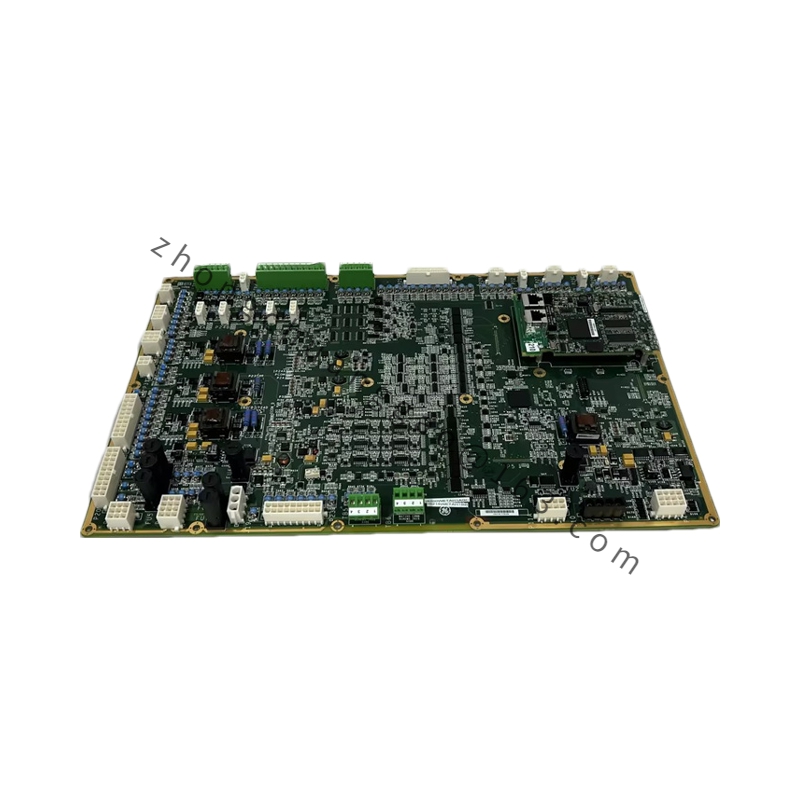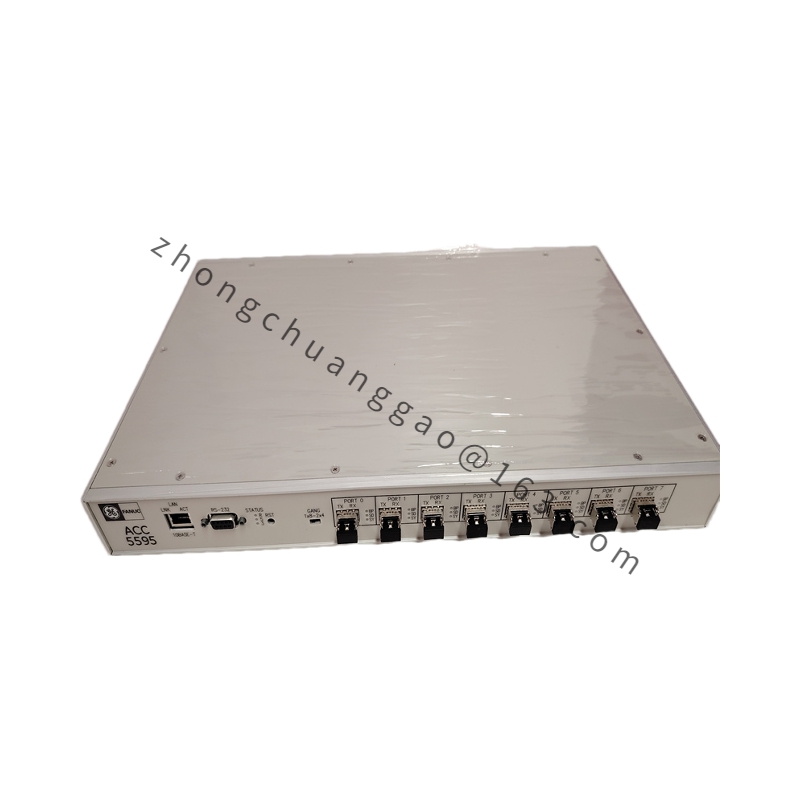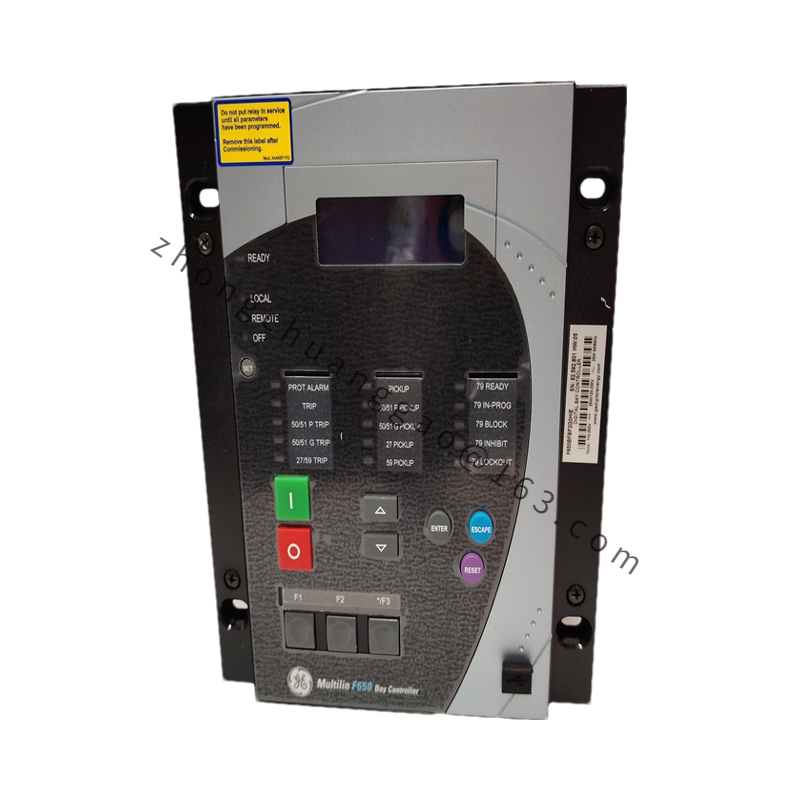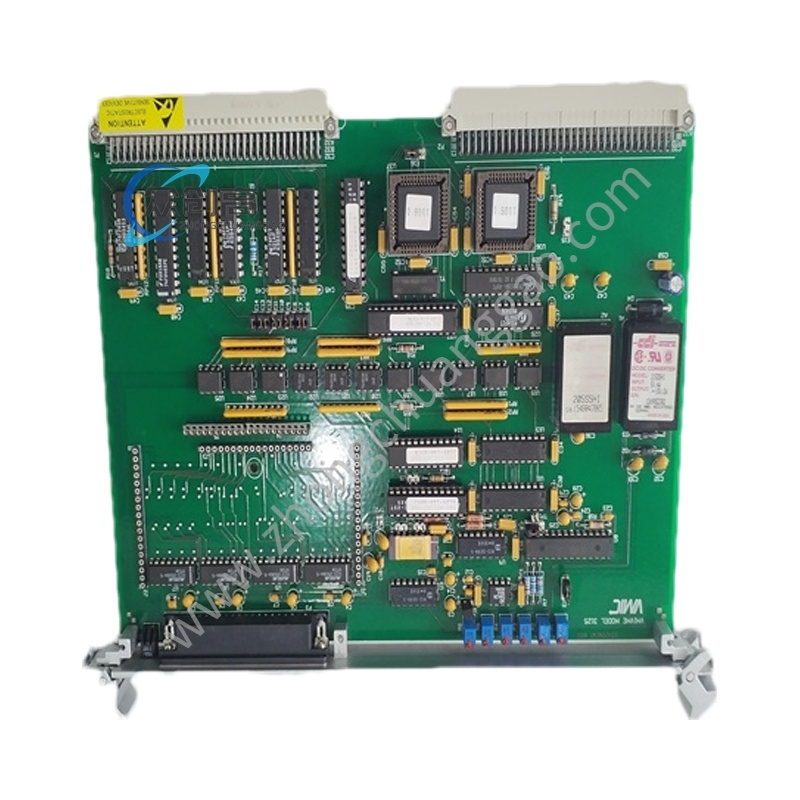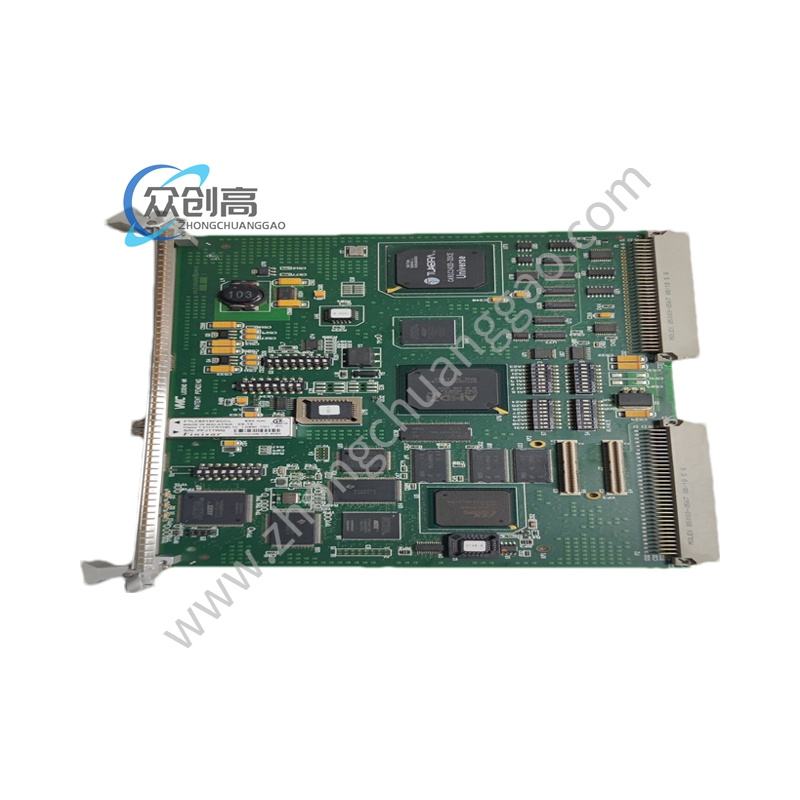GE IC754VSL06MTD-DF
Technical Specifications
- Display: 6-inch monochrome LCD with resistive touch input.
- Processor: Intel XScale PXA255, clocked at 300MHz.
- Memory: 32GB internal storage (specific RAM/Flash details vary by source; some indicate 256MB RAM/512MB Flash).
- Operating System: 32-bit Windows CE.NET or Proficy View Machine Edition software.
- Communication Interfaces:
- 1x 10BaseT/100BaseTx Ethernet port.
- 1x RS-232 port and 1x RS-485 port.
- 1x USB 1.1 port (supports optional keyboard/peripherals).
- CompactFlash card slot for expanded storage/program transfer.
Detailed content
- Power Requirements: 12–30VDC (max 30VDC), ≤15W power consumption.
- Environmental Specifications:
- Operating temperature: 0°C to 50°C.
- Storage temperature: -20°C to 60°C.
- Humidity: 85% RH (non-condensing).
- Enclosure rating: IP65 (front panel), NEMA 4/4X.
- Physical Dimensions: 192 × 137 × 36 mm (7.56 × 5.39 × 1.42 inches).
- Weight: 0.8 kg (1.76 lbs).
Key Functional Characteristics
- Compact and Robust Design: Built for space-constrained industrial settings with resistance to dust, moisture, and vibrations.
- Flexible Communication: Supports Ethernet, RS-232/RS-485, and USB for seamless integration with PLCs, sensors, and other devices.
- User-Friendly Interface: Touchscreen operation with optional stylus, paired with Proficy View software for intuitive HMI programming.
- Data Handling: Stores historical data and event logs for troubleshooting and process optimization.
- Visual Indicators: Three-color LED status lights for real-time system feedback.
- Legacy Support: Compatible with older GE automation systems, though now discontinued (refurbished units may still be available).
Application Scenarios
- Manufacturing Automation: Controls assembly lines, CNC machines, and robotic systems for precise operation.
- Process Control: Monitors parameters in chemical, pharmaceutical, or food/beverage production.
- Energy Management: Tracks power generation and distribution in substations or renewable energy plants.
- Water/Wastewater Treatment: Automates pump stations and filtration processes.
- Building Automation: Integrates HVAC and lighting systems in smart infrastructure.
- Transportation: Manages traffic signals or railway signaling systems.

